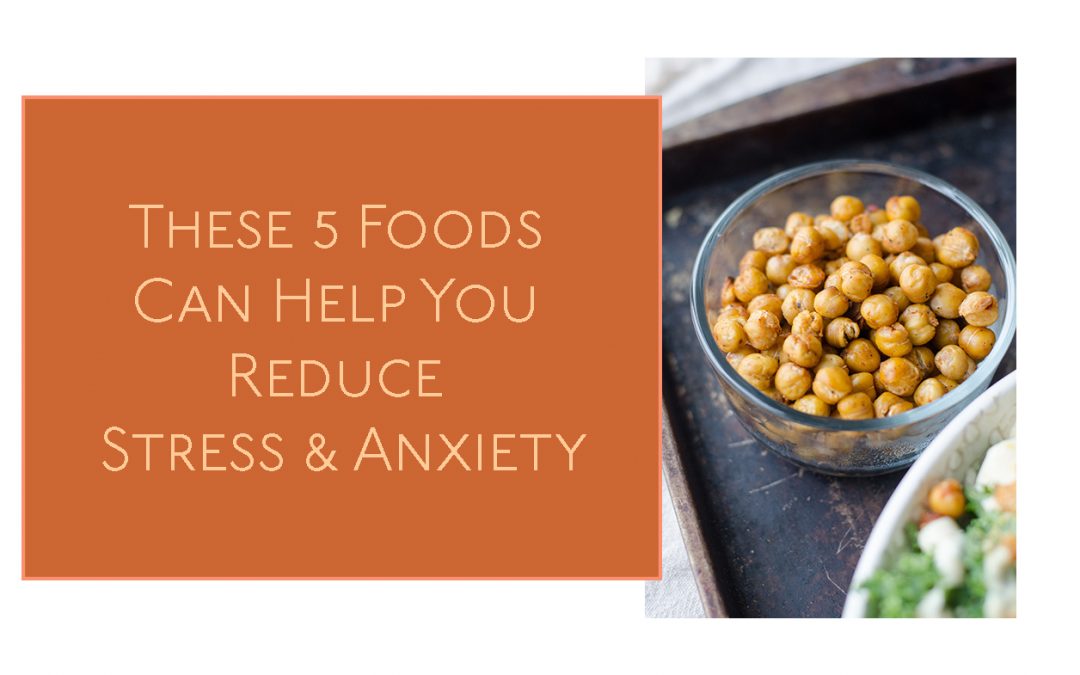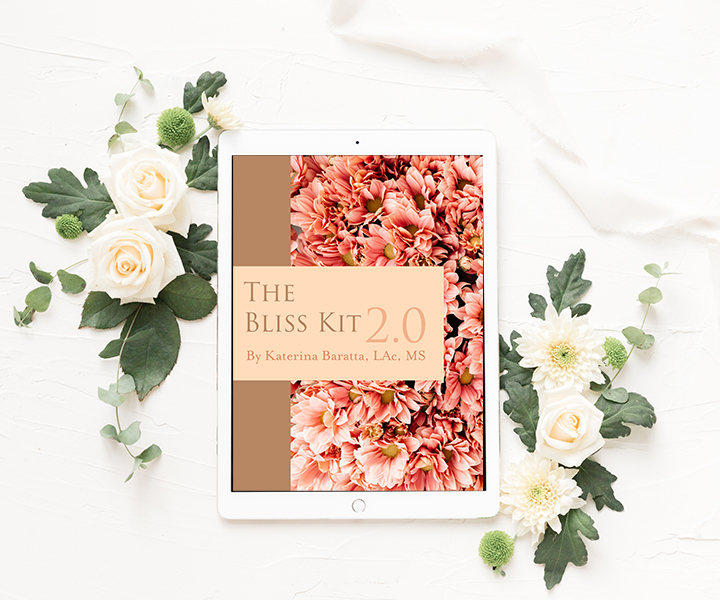Did you know that the food you eat can help to reduce stress and anxiety?
It’s true.
These are stressful times.
And for many people stress can become overwhelming, leading to anxiety, insomnia, digestive issues, and more.
But what most people don’t realize is that stress and anxiety can have their roots in more than what you think.
In fact, a huge part of your stress response starts in your body, not your mind.
Of course, this goes both ways.
Think a stressful thought and you will notice your body tense up.
But more and more studies are coming out showing that the connection between mental health and the body is not to be underestimated.
And a large part of this action starts in the gut.
In fact, it is estimated that more than 90% of the essential feel-good neurotransmitter serotonin is produced in the gut! (1)
So if you want to reduce stress and anxiety, you can’t just go to therapy, and you can’t just do journal exercises to shift your mindset.
Yes, retraining your thoughts will help you reduce stress and anxiety.
But you’ve got to take a good look at what’s happening in your gut, too.
What’s really interesting is that traditions like Ayurveda, Chinese medicine, and ancient Greek medicine have been saying this for thousands of years.
All of these traditions emphasize the importance of food for health.
And they recognize that the mind and body aren’t just connected, they are part of the same inextricable whole.
Conventional Western medicine is finally starting to catch up.
And scientific investigation is proving time and time again that what you eat has a direct impact on how you feel.
We now know that a few things happen when you eat foods that support the microbiome in your gut.
And in case you’re new to this idea, “microbiome” is just a fancy way of talking about the ecosystem of bacteria, viruses, protozoa, and fungi you have living in your digestive tract.
But don’t be grossed out.
A lot of these microbes are actually really, really helpful and essential to your health.
So you want to feed the friendly microbes in your gut by eating the right foods.
And when you do, you reduce overall inflammation in your body, which reduces overall stress because your body doesn’t have to fight as hard to function well.
The second thing that happens when you eat gut-supporting foods is that your body is better able to absorb the nutrients it needs.
And both of these factors lead to a calmer mind.
Because, what are emotions, exactly?
Emotions are literally feelings in your body.
So when your body feels better and is able to function better, your emotions feel better too.
Gut-healthy foods also help to regulate blood sugar, which has a positive impact on a whole cascade of hormones in your body, including your stress hormones. (2, 3, 4)
So it’s clear that in order to reduce stress and anxiety, it’s important to eat more foods that support a healthy gut.
With that in mind, here are 5 foods you can emphasize in your diet to help you reduce stress and anxiety:
1. Onions
Onions are a prebiotic food.
Prebiotic means that they feed the healthy bacteria in your gut (“pre” means “before”, and “biotic” refers to the bacteria).
This is because onions contain the type of fiber that passes through your small intestine undigested so it can be fermented by the friendly bacteria in your colon.
And this fermentation process produces important short-chain fatty acids, which are essential for overall gut health, improve energy, and help to boost mood. (5)
2. Collard Greens
Collard greens are another high-fiber prebiotic food that feed the helpful microbes in your gut.
But their benefit extends even further.
Collards are a good source of vitamin K, carotenoid vitamin A, vitamin C, calcium, and a long list of other nutrients that help to keep your body and mind happy. (6)
3. Chickpeas
These little legumes have gained a lot of popularity in the wellness world in recent years, and with good reason.
Chickpeas (also known as garbanzo beans) are filled with a long list of nutrients including polyunsaturated fatty acids, vitamin A, vitamin E, vitamin C, folate, magnesium, potassium, and iron, in addition to gut-healthy fiber. (7)
To get the most benefit out of your chickpeas, buy them dried and allow them to soak for at least 12 hours before cooking.
Bonus points if you let them sprout, which can increase their nutrient content and make them more digestible to boot. (8)
4. Sauerkraut
In addition to feeding your microbiome with high-fiber prebiotic foods, you also want to keep populating your gut with the right kinds of bacteria.
Fermented foods like sauerkraut are one of the best ways to do this.
Find sauerkraut (and other fermented foods) in the refrigerator section of the supermarket to ensure that it’s packed with the probiotics you want.
The label should tell you that it’s fermented, probiotic, or that it contains “live cultures”.
5. Extra Virgin Olive Oil
Good quality fats have also been shown to be important for gut health. (9)
And the queen of these is extra virgin olive oil (EVOO).
In addition to boosting beneficial gut bacteria, a study published in 2018 in the journal Acta Scientific Nutritional Health demonstrated that EVOO is the most stable of all cooking oils thanks to its high antioxidant content. (10)
So cook with it or drizzle it on top of your food for extra flavor before you eat, either way, you’ll be supporting your mood.
If you add these 5 foods into your weekly meal-plan you’ll be sure to see benefits to both your mental and physical health.
But this is really just a starting point.
If you really want to reduce stress and anxiety, a holistic approach is going to be your best bet.
Improving gut health along with other stress-management strategies is going to make the biggest impact when it comes to long-term mental health.
References:
- https://www.ncbi.nlm.nih.gov/pmc/articles/PMC4393509/
- https://www.ncbi.nlm.nih.gov/pmc/articles/PMC6363653/
- https://www.ncbi.nlm.nih.gov/pmc/articles/PMC5115704/
- https://dtc.ucsf.edu/types-of-diabetes/type2/understanding-type-2-diabetes/how-the-body-processes-sugar/blood-sugar-other-hormones/
- https://www.ncbi.nlm.nih.gov/pmc/articles/PMC3735932/
- http://www.whfoods.com/genpage.php?tname=foodspice&dbid=138
- https://www.ncbi.nlm.nih.gov/pmc/articles/PMC5188421/
- https://www.ncbi.nlm.nih.gov/pmc/articles/PMC4608274/
- https://www.ncbi.nlm.nih.gov/pmc/articles/PMC5385025/
- https://www.drweil.com/diet-nutrition/cooking-cookware/does-high-heat-hurt-olive-oil/




